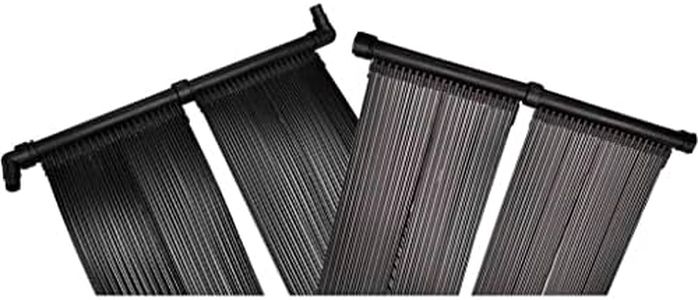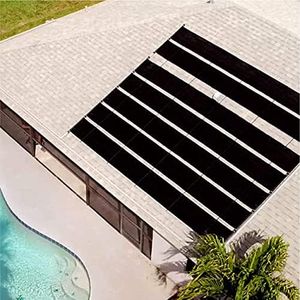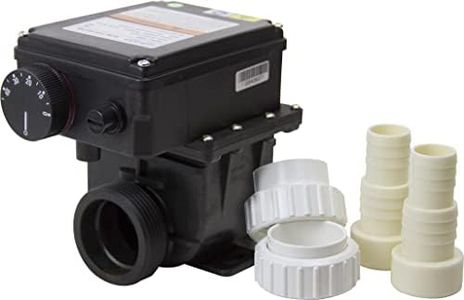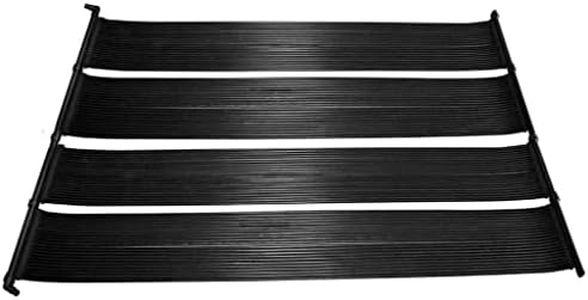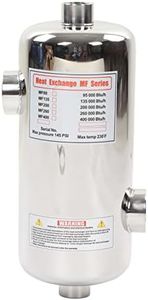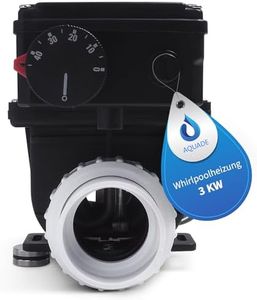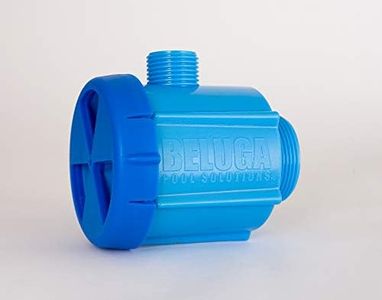We Use CookiesWe use cookies to enhance the security, performance,
functionality and for analytical and promotional activities. By continuing to browse this site you
are agreeing to our privacy policy
9 Best Pool Heaters
From leading brands and best sellers available on the web.By clicking on a link to a third party's website, log data is shared with that third party.
Buying Guide for the Best Pool Heaters
Selecting a pool heater can make a big difference in how often and comfortably you use your swimming pool. When choosing the right pool heater, think about your pool size, how quickly you want the water to heat up, your climate, and how you plan to use your pool throughout the year. Understanding the main specifications will help ensure you pick a heater that suits your usage habits and keeps you enjoying your pool for longer periods.Heater TypePool heaters generally come in three types: gas, electric heat pumps, and solar. Gas heaters (propane or natural gas) heat water quickly and work well for pools used occasionally or in colder climates, but they require access to a gas line and regular fuel supply. Electric heat pumps are energy-efficient and best for maintaining steady temperatures in moderate climates, but they heat water more slowly. Solar heaters use panels to collect and transfer heat from the sun, making them eco-friendly and cheap to run, but they depend heavily on sunny weather and usually require more space. Deciding which type fits your needs depends on your location, desired speed of heating, and how environmentally friendly you’d like to be.
Heating Capacity (BTU Output)The heating capacity, often measured in BTUs (British Thermal Units), indicates how much heat a heater can provide. It's crucial because it determines how quickly and effectively your pool can be heated. Generally, higher BTU means faster heating and suitability for larger pools. As a guide: smaller pools (under 15,000 gallons) may need heaters in the 100,000–200,000 BTU range, medium pools (15,000–25,000 gallons) from 200,000–300,000 BTU, and larger pools (over 25,000 gallons) above 300,000 BTU. Choose a capacity that matches your pool size and how often you want to swim in comfortably warm water, especially if you often use your pool early or late in the season.
Energy EfficiencyEnergy efficiency tells you how well a heater converts energy into heat. A more efficient heater uses less gas or electricity to warm your pool, saving you operating costs and reducing environmental impact. Efficiency is usually noted as a percentage for gas heaters (higher is better) or a coefficient of performance (COP) for heat pumps. If you plan to run your heater often or want to keep ongoing costs low, look for higher efficiency ratings.
Compatibility with Pool Size and TypeNot every heater is suitable for every pool. Some models are designed specifically for in-ground pools, while others are tuned for above-ground setups. Beyond physical compatibility, the size of your pool directly affects which heater can do the job without overworking. Check the manufacturer’s recommendations to ensure the heater is appropriate for both your pool’s volume and type; this avoids frustration from underpowered or incompatible equipment.
Installation and Space RequirementsPool heaters vary in how and where they can be installed. Gas heaters require proper venting and access to fuel lines, electric heat pumps usually need enough space for airflow, and solar models require adequate surface area for their panels—usually on a roof or ground nearby. Think about your available space and your ability to accommodate the installation requirements when considering different options, as the right fit will impact performance and safety.
Maintenance and DurabilityDifferent heater types and models will have varying needs for care and maintenance. Consider whether the materials are corrosion-resistant and if the heater is built to withstand harsh weather if placed outdoors. Some options require regular checks, cleaning, or part replacement. If you prefer minimal upkeep, look for durable builds with good manufacturer support and consider the climate in your area, as cold or salty environments might require tougher materials.
